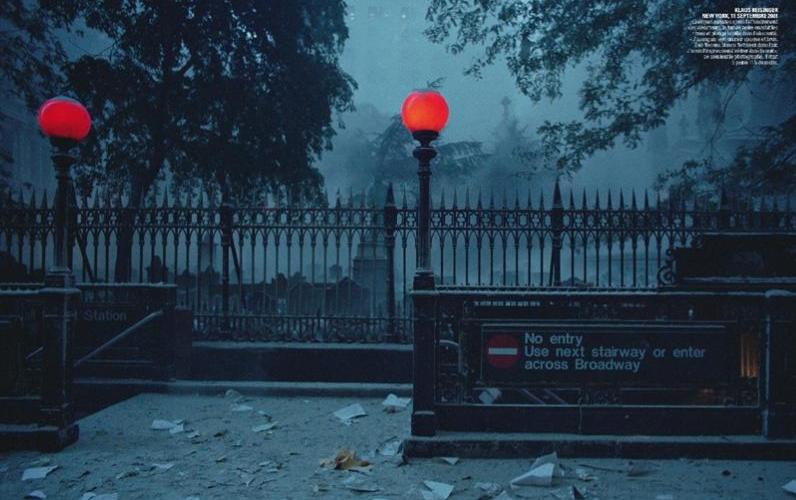Mythology, Pride, and Basinski (guest article by Jake Bellissimo)

Mythology, Pride, and Basinski
The scene is set with a picture well-known to many: a 43 year-old William Basinski and friends sitting on the roof of his apartment building in Brooklyn, listening closely to an album he had just finished while watching the World Trade Center towers collapse on the morning of September 11th, 2001.
The album they were listening to was released the following year under the name The Disintegration Loops. In the most basic sense it’s a collection of recordings that Basinski made in 1982 and tried to convert digitally, only to find that each time the tape passed around it would deteriorate. Taking note of this, Basinski proceeded to record each tape playing until it disappeared completely, later treating the recordings with reverb for extra resonance.
Over time, though, it became much more than that. The mythology of the initial construction of the album being coincidentally timed with 9/11 has held the forefront of almost every review you’ll find.
That’s certainly not the fault of the music, though—The Disintegration Tapes was pieced together at a very poignant time in (American) history, boasting a powerful backstory. It’s only a matter of luck that the music itself was great on its own, undoubtedly prompting the critical acclaim it received upon release.
However, this piece sets the stage for something that consistently bothers me:
What is the role of concept and mythology when it comes to music? Does it have any relation to the quality or reception of the music?
If you ask the majority of musicians, they’ll try to tell you this is simple, the music is the most important, concepts are for the vain, etc. but this response appears to come out of a need to validate one’s work, as if a backstory would get in the way of the music itself. This has always confused me, because what are people afraid of?
Sure, it is important to not let your work be only represented by the story (ranging from means of creation to historical context to inspiration, etc.), but to what degree is having an explanation for a piece degrading to the content?
Of course, you have the other side of the spectrum—works that have only a conceptual and political (in this case form and Fluxus, respectively) basis without any traditional musical component. An example for this comes from George Brecht:
Flute Solo
disassembling
assembling
1962
In the end, I want to say that it just requires a balance of concept to give the music reason, and in return the music will make the rest of it worthwhile.
Our culture of giving people music based on their interest, background, or stories (a natural result of marketing recordings—how many times have you heard adolescents talk about how “fucked up” the backstory behind Symphony Fantastique is?) makes this quite easy. For pieces that find critical and cultural success, there is typically a mix that makes it all work. Unfortunately, though, I have trouble setting a bar for this golden ratio. It differs on a piece-by-piece basis, and of course there is always a dash of luck (place, time) thrown in as well.
I just know that it doesn’t have to do with pride.
What do you think?

Bill Biggart heard that the first plane crashed into the WTC on the radio; he rushed to the site, and documented the devastation until the North Tower collapsed and buried him. He was the only photographer killed during the attack. His camera and film were recovered, published in Newsweek on October 19th 2001. They are now in Newseum. source: www.iconicphotos.com
Jake Bellissimo
Composer and Arranger, Violist, Music Producer










